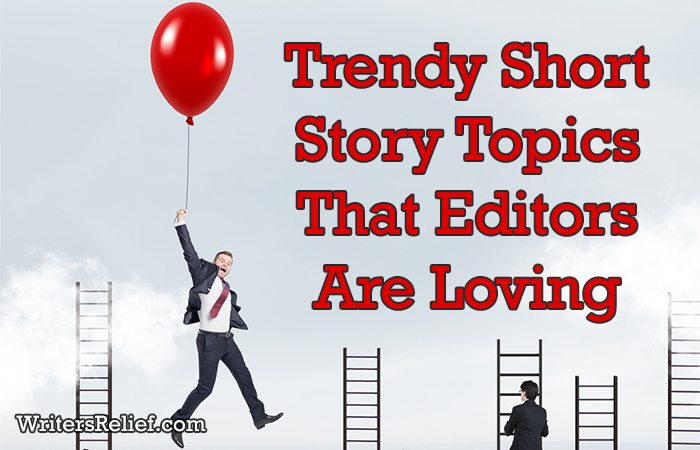
Great writing plays a starring role in garnering acceptance letters from literary magazines. But there’s another element that will give your submissions a competitive edge: trendiness. The idea of “trendiness” often has a bad reputation because of passing fads, but being trendy is actually about being plugged in, aware of, and engaged with modern culture—not about writing in a particular style because everyone else is doing it.
At Writer’s Relief, we spend hundreds (probably thousands) of hours every month tracking publishing trends in literary journals. We’ve noticed that there are topics, themes, and concepts that literary journal editors love to see in short story submissions—and some they don’t. Here’s what’s currently hot—and what’s not—for short story inspiration.
Like our insider info and writing advice?
Then you’ll love the many other ways Writer’s Relief can help!
From effectively targeting markets, writing dynamic query letters, building authors’ online platforms, and much more—find out how Writer’s Relief can boost your exposure and maximize your acceptance rate.
Trending Elements To Include In Your Short Stories
Slice-of-Life Vignettes — As more and more journals publish online, they are more inclined to accept shorter pieces for their issues. Most readers do not want to read a lengthy piece of prose on a very small smart phone screen! So, rather than trying to encapsulate an entire event or day, home in on one interesting aspect of it—create a vignette. Even if the piece is short in nature, be sure to provoke the reader’s emotions. Creating a large impact on the reader with a small number of words is what many editors are searching for.
Character studies — As the public and media become increasingly engaged in topics pertaining to psychology and mental illness, literary journals are looking for writers to help them become part of the conversation. Try writing a story from the perspective of an individual who is coping with a difficult situation.
Under-represented perspectives and voices — Give yourself the challenge of writing from a different perspective. Change the character and the voice of a familiar theme to one that’s fresh; offer something new or present different ideas to your readers.
Elements To Avoid In Your Short Stories
Very religious writing — Editors tend to back away from religiously dogmatic writing. If your work is mostly just an argument for specific religious views and values, it will most likely not be accepted by a mainstream literary journal. If you are set on submitting short stories about religious beliefs, consider submitting to literary magazines that focus specifically on religion. This is not to say that religion can’t play a part in your writing. But writing of a spiritual nature is different from dogmatically religious works.
Commercial genres or themes — Many literary journals avoid publishing works that fall into the commercial or mainstream category: thrillers, fantasies, sci-fi, and romance. However, there are magazines that exclusively publish sci-fi or only horror, etc. So if that’s what you want to write, you can! Just keep in mind that you will be targeting a limited market.
Erotica — Most literary journals will accept stories that include some graphic sex. However, consider cutting out any pure erotica, since most literary magazine editors won’t be interested. Unless the magazine specializes in sexually explicit writing, it is not a good idea to submit a story that focuses on erotica.
Looking for inspiration? Check out some of the world’s most beloved short stories!
 QUESTION: What elements do you like to see when you read a short story?
QUESTION: What elements do you like to see when you read a short story?
